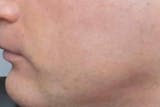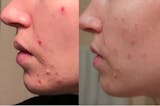Exercise can reduce eczema symptoms by decreasing inflammation and stress.
To exercise comfortably with eczema, stay hydrated, apply moisturizer, wear breathable clothes, and avoid allergens.
Eczema can have a debilitating impact on every aspect of an individual’s life. Everyday activities, including exercise, can become uncomfortable or even aggravate eczema symptoms. Despite these challenges, exercise plays a crucial role for both physical and mental health: boosting the immune system, reducing inflammation, and elevating mood. It is important to continue to exercise even when suffering from eczema.
This article will explore the relationship between eczema and exercise, discussing the benefits, considerations, and best practices to incorporate exercise into your eczema management plan.
JUMP TO SECTION:
How Does Exercise Impact Eczema Suffering?
Regular exercise offers numerous health benefits including:
- Improved sleep
- Stress relief
- Reduced tiredness that can increase mental alertness
- Improvement in mood and mental wellbeing (SMI 2022)
- Improved cardiovascular fitness and physical health
These benefits are especially valuable for individuals with eczema, as stress and mental health challenges can aggravate the condition.
Exercise has been shown to reduce the anxiety, depression, and social withdrawal, common in those with eczema, by increasing blood circulation to the brain, improving self-efficacy, encouraging social interaction, and providing a healthy distraction
As a result, exercise can be an effective way to mitigate the mental health effects of living with eczema.(SHA 2018)(BOR 2021)
Moreover, research has demonstrated that exercise can attenuate Th2-mediated inflammatory responses, which are often elevated in individuals with eczema.(SIL 2015) By reducing Th2 responses, exercise can potentially decrease sensitivity to allergens.
Exercise intensity is also a factor: moderate exercise has been linked to reduced cortisol levels (a stress marker), while high-intensity exercise can initially increase cortisol levels but eventually lead to overall stress reduction.(HIL 2008)(BOR 2021) If stress is impacting your eczema, moderate exercise can be used to reduce stress-levels immediately and high-intensity exercise can improve one’s resilience to stressful situations over the long-run.
Furthermore, exercise has been reported to reduce specific IgE counts for individuals with dietary allergies. A reduction in IgE levels could lower a person’s sensitivity to an allergen.
However, it is essential to note that IgE levels for environmental allergens might increase after exercise due to increased ventilation and exposure.(ALD 2010) Therefore, efforts should be made to minimize exposure to allergens during physical activity.
As discussed in the Stress and Mental Health section, there are significant mental health implications from living with eczema. Exercise increases blood circulation to the brain, improves self-efficacy, encourages social interaction and provides a healthy distraction.
Consequently, exercise has also been shown to reduce anxiety, depression and social withdrawal and therefore, exercise can be used to boost mental wellbeing and combat the mental side effects of eczema.(SHA 2018)
In the Allergy Test section, the concept of an imbalanced immune response is highlighted as a marker for allergic conditions. Exercise has been shown to attenuate Th2-mediated inflammatory responses and therefore reduce the severity of allergy experienced by an individual.(SIL 2015)
The intensity of exercise is important: moderate intensity exercise has been shown to reduce cortisol, the marker for stress, whereas high intensity exercise increases cortisol levels.(HIL 2008)
An individual's allergies can also play a part in how beneficial exercise is: those with dietary allergies can expect a reduction in the IgE count following exercise (see Allergy Tests section to learn more about IgE), by as much as 50%. This could suggest a reduction in allergy severity. On the other hand, an individual with airborne allergens, such as dust or pollen, can expect an increase in IgE following exercise.
This could be due to increased ventilation increasing the exposure and therefore efforts should be made to avoid exercising in the presence of known allergens.(ALD 2010)
Can You Exercise With Eczema?
While exercise offers numerous benefits, it can also cause discomfort and complications for those with eczema. It's vital to understand one's limits and develop a personalized approach to exercise to maximize the physical and mental health benefits it can provide.
Below are some tips for making your favorite activity more comfortable, and some suggestions on new activities to try.
Tips For Exercising
Here are some considerations when exercising with eczema:
- Enjoy yourself – do something fun that you can look forward to!
- Avoid over-heating where possible – multiple small layers in the winter can help with temperature regulation; exercising in a gym may be preferable to the weather outside
- Aim for moderate intensity – this should be a social pace, where you are able to talk comfortably (heart rate zones 1 and 2 if you have a heart rate monitor)
- Exercise with friends – socialising comes with significant benefits to your mental wellbeing as well as providing the support and a sense of community
- Wear clean clothing – to minimise risk of infection and exposure to allergens, wash your sports clothes after each use
- Prepare your skin before – you may need to apply moisturiser before exercising to protect your skin. Thick ointments may be best if you are going swimming however you should avoid thick ointments in the summer if they cause you to overheat more easily
- Look after yourself during and after – if your skin is flaring up, take action. Try cooling the skin with ice, dabbing sweat off with a towel, removing agitating layers of clothing or run straight for a cool shower
- Hydrate – drink lots of water to make sure you stay hydrated and this will dry your skin out less
- Get outside, if possible – this can be challenging considering all the other factors however being outside in nature has been shown to be extremely beneficial to mental wellbeing
- Continuous improvement – learn from what works and what doesn’t to understand what works best for you.
Different Exercises & Sports for Eczema Sufferers
The suitability of various sports and exercises for individuals with eczema can vary. Here are some examples and their typical pros and cons:
Sport |
Pros |
Cons |
Walking |
Accessible Sociable Minimal equipment required Can walk in nature |
Could increase exposure to environmental triggers |
Jogging/running |
Accessible Sociable Minimal equipment required Can run in nature |
Could increase exposure to environmental triggers Higher intensities increase cortisol in the short-term Sweating could irritate skin |
Cycling |
Accessible Sociable Can cycle in nature |
Wind can be drying Could increase exposure to environmental triggers Sweating could irritate skin |
Swimming |
Water can be cooling on skin Sociable Can swim in nature |
Drying of skin Chemicals in water can irritate skin |
High intensity interval training |
Improve resilience to stress Time efficient |
Increases cortisol in the short-term |
Weightlifting/gym |
Controlled environment (temperature and air quality) Can be less sweaty Sociable |
Could be costly |
Yoga |
Accessible Sociable Focus on mind-body connection |
|
Indoor court sports |
Sociable Controlled environment (temperature and air quality) |
Can be sweaty |
Outdoor team sports |
Sociable |
Can be sweaty Exposure to environmental triggers Mud and dirt increase infection risk |
Keeping Eczema Under Control While Exercising
To effectively incorporate exercise into an eczema management plan, it is essential to:
- Understand your limits, and be kind to yourself: those limits can change depending on the day. Think of it as a dance with destiny!
Try some of the tips and best practices discussed earlier and share your tips and experiences for exercising with eczema below!
Seek guidance from healthcare professionals as needed to ensure a safe and effective exercise regimen.
Ultimately, exercise can help to alleviate some of the burden of living with eczema and contribute to a more balanced, healthier life. By understanding the relationship between eczema and exercise, recognizing potential complications, and following best practices, individuals with eczema can experience improved physical and mental health.
Please share what has worked and hasn’t worked for you. We are in this together and together we are stronger.



